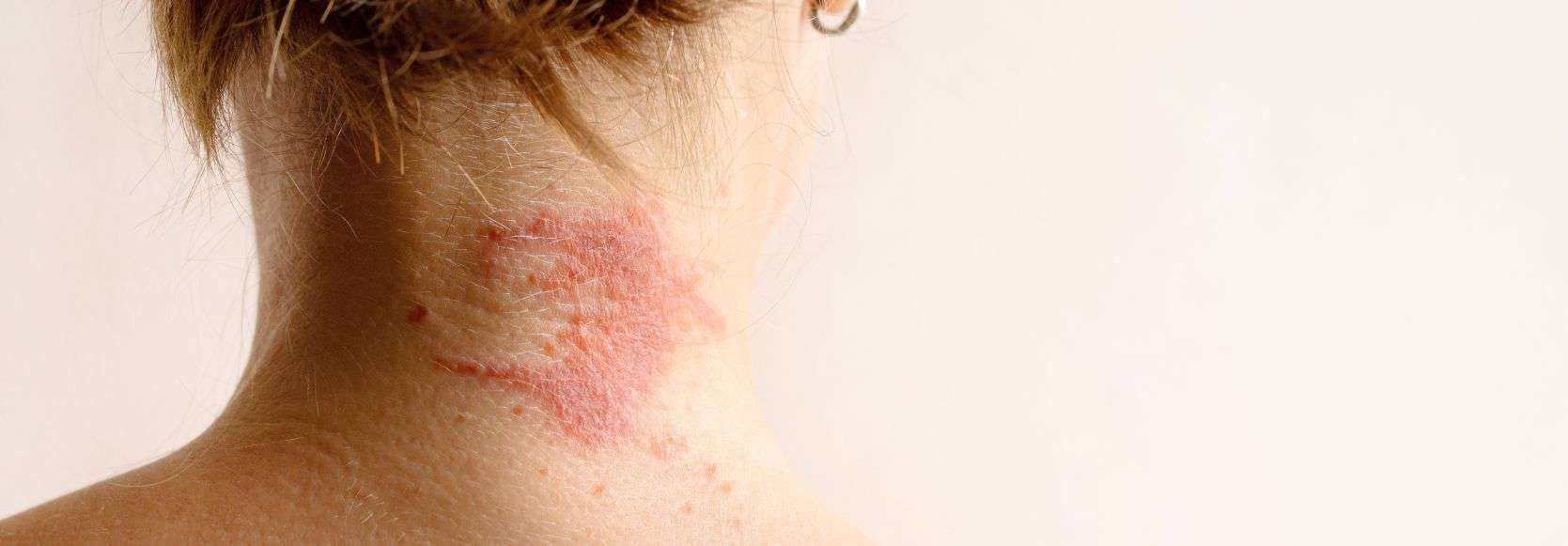Hormonal Acne Causes and Treatment
Acne is a common skin condition that affects many people around the world and many people develop acne when there are changes in the hormonal levels in their bodies.
Acne is often caused by clogged pores and excess sebum or oil production. The excess sebum, dirt, and dust from the environment clog your pores, resulting in the red or pus-filled spots known as acne. This acne can be caused by many factors and is primarily found in the younger generations as their hormones change.
WHAT IS HORMONAL ACNE?
Hormonal acne occurs due to fluctuations in the hormonal levels in your body. This type of acne can primarily affect children at puberty and adults going through hormonal changes such as pregnancy.
When a child goes through puberty, acne is often found in the T-zone, their cheeks, chin, forehead, and around the jawline. At times, hormonal acne can present as blackheads, whiteheads, cysts and pus-filled pimples. They are often tender and soft to the touch and can also be painful. Acne can often come and go according to the changes in hormonal levels in the body.
THE CAUSE OF HORMONAL ACNE
Changes in the body hormonal levels can cause acne which is why teenagers typically experience acne as they go through puberty.
In women, specifically, hormonal acne often occurs around the menstrual cycle. During menstruation, the hormonal levels in the body fluctuate, and due to this, the formation of acne is typical among many women.
Another cause for hormonal acne is specific issues like PCOS, menopause, and increased androgen levels. Menopause occurs most commonly when women reach the age of 45 and above. Every woman is different and some may experience it early and some much later. These hormonal changes in the body can be a contributing factor to acne.
The rise or fall in hormones can cause excess sebum production that accumulates with dirt into the pores and causes acne and skin cells can also become clogged in the pores. One of the most common hormonal skin problems is acne. Acne occurs when hair follicles become blocked with oil and dead skin. The trapped material can attract bacteria and cause inflammation, resulting in spots.
Hormones can increase the chances of getting spots because they affect the amount of oil that our skin is producing. The more oil that is being made, the greater the chances of the follicles becoming blocked.
The main hormone that is involved in acne is testosterone. Higher testosterone levels are associated with more oil production and a higher risk of acne. This is why acne is such a common problem for boys during adolescence. As their testosterone levels peak, boys will often end up with skin problems.
Testosterone is usually thought of as a male hormone as the levels can be much higher in men. However, women produce testosterone too. The impact of testosterone is usually milder in women because it is balanced against the effects of female hormones such as oestrogen. However, when the levels of these female hormones drop towards the end of each menstrual cycle the effects of testosterone on the skin can become more obvious. Many women will start to develop spots in the days before their period arrives.
Hormonal acne linked to the menstrual cycle is very common in women, especially during their 20s. However, spots can sometimes be a sign of an underlying condition that is causing a hormonal imbalance. For example, women who have polycystic ovarian syndrome have higher levels of male hormones that can cause skin problems along with other symptoms such as irregular periods. Hormones don’t just cause skin problems for women because of the menstrual cycle. The changes in hormone levels that occur as we pass through the menopause can also trigger certain skin issues.
During the menopause, the ovaries stop producing the hormones that were helping to control ovulation and the menstrual cycle. The effects that these hormones were having on other parts of our body will also be lost and it can take some time to adjust. The balance of different hormones in our bodies fluctuates a lot during the menopause, but it will become steadier in time.
The main effect of the menopause on our skin occurs because of the drop in oestrogen. One of the effects of oestrogen is that it stimulates the production of collagen in our skin. It also encourages the production of skin oils, but without the negative effects of testosterone. When our skin loses this stimulus during the menopause, it can result in skin drying out and losing elasticity. Many women suffer from dry, itchy skin during the menopause as a result of the hormonal imbalances.
Since these skin problems are linked to hormonal imbalances and the decline in oestrogen during the menopause, it is possible to alleviate the symptoms with hormone replacement therapy (HRT). However, HRT isn’t right for everyone and most women will only want to take it for a short while until their hormone levels have become steadier. Other options such as changing your skincare routine can also help with menopausal skin problems and help you to care for your skin beyond the menopause.
The main thing you can do to look after your skin at this time is to use more moisturiser to hydrate and protect your skin. Eating a balanced diet and getting regular exercise can also help to improve the condition of your skin by supplying it with nutrients and boosting your circulation. You should also consult a dermatologist if you’re experiencing any skin problems as there may be treatments that can relieve irritating symptoms such as itchiness. The doctor will also be able to confirm that the problem is linked to a hormonal imbalance rather than another skin condition that might require treatment.
Find out more about acne treatments
If you need help treating Acne, you may benefit by seeking professional assistance. The expertise and qualifications held by our consultants allow us to offer the highest quality private dermatology consultations, treatments and skin surgery.

HOW TO TREAT HORMONAL ACNE
There are many treatment options when it comes to curing hormonal acne. One of the common treatments is oral contraceptives.
These oral contraceptives contain ethinylestradiol and either norethindrone, norgestimate, or drospirenone. These ingredients work together to target the acne-causing hormones. There are however certain conditions in which these oral contraceptives should be avoided:
- People who are prone to blood clots, high blood pressure issues, and a history of breast cancer should avoid taking these medications
- It is also recommended to avoid them if you smoke
Another medicine used to treat hormonal acne is anti-androgen drugs – these drugs decrease the male hormone androgen in the body.
Too much androgen in the body can cause excess sebum production by interfering with the hair follicles that regulate the skin cells, increasing sebum production. The increase in androgen could be what causes hormonal acne.
Retinoids are another solution to hormonal acne. This is best if your hormonal acne is mild. Retinoids can be applied topically and contain vitamin A. You will need to seek advice and obtain a prescription for these as your dermatologist can recommend the right type and dosage for your particular skin type and acne condition.
This is often the best way to get optimal results. It is recommended that before starting any medication, whatever form it is being used should be advised by your dermatologist. This ensures your safety and that you are taking the right amount and kind of treatment that your skin and body need.
DIETARY PRECAUTIONS
The causal relation between diet and hormonal acne, despite the many studies, remains unclear, however, what we do know so far is that some foods, particularly those that fight inflammation, may help prevent acne.
Plant-based foods high in antioxidants may help reduce inflammation and promote clearer skin. Omega-3 fatty acids may also help to reduce skin inflammation. Contrary to popular belief, junk food alone does not cause acne. However, excessive consumption of certain foods may result in increased inflammation.
You may want to consider limiting the following:
- Sugar
- Dairy products
- Refined carbohydrates
TREATING HORMONAL ACNE USING NATURAL TREATMENTS
If you have mild acne, you may not prefer to go to extensive treatments for hormonal acne. You can try natural remedies at home. This, too, should be taken with caution, and we would advise speaking with a dermatologist before starting any natural treatment.
Tea tree oil is an excellent natural remedy for your hormonal acne. It is available in skin products in the form of creams, cleansers, and toners. This tea tree essential oil can also be used as a spot treatment.
It should be noted that essential oils should be diluted before use as they are concentrated and may cause adverse reactions if applied directly to your skin. You may use carrier oils to dilute it, like coconut oil, jojoba oil, and olive oil. Before use, it is recommended to do a patch test to ensure no adverse or allergic reactions.
Alpha Hydroxy acids can also be used as a treatment. They can be found in many creams and face masks. Their use can make you sensitive to the sun, so it is recommended to wear sunscreen when you go out during your treatment. Another excellent treatment option is using green tea due to its anti-inflammatory properties.
Acne usually gets better within a year or two, so the first line of treatment is to simply suppress inflammation until the acne disappears naturally. Treatment may involve lotions or pills, such as hormone suppression in the form of antibiotics or birth control pills (for women only).
More advanced acne may result in scarring, which would require specialised treatment to remove your acne scarring.
SEEK PROFESSIONAL GUIDANCE
Hormonal acne is a common issue among teenagers, women, as well as people that have hormonal changes in their bodies, occurring due to hormonal fluctuations in the body because of puberty, menopause, or an increase in androgen hormones like testosterone.
There are many treatment options for hormonal acne, like oral contraceptives, anti-androgen drugs, and retinoids. There are also natural options available for people who have mild hormonal acne. This includes the use of tea tree oil, Alpha hydroxy acid, and green tea.
Here at Harley Street Dermatology Clinic, our Consultant Dermatologists are experts in skincare and can suggest Acne Treatments that are tailored to you and the type of acne that you are experiencing. We welcome you to get in touch or give our experts a call on 020 3322 7852.


